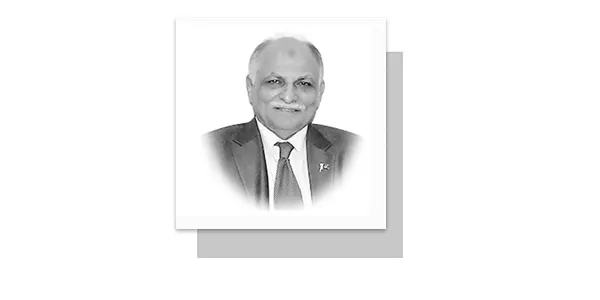A king once asked the wise men in his kingdom to travel all globally and discover the eternal truth. Years later, they returned and told him that they have found the answer. It was, ‘and this too shall pass’. Today, the leaders and office bearers of various Chambers and Associations often offer their opinions and views on the economic situation in Pakistan. The representatives of trade and industry routinely highlight their struggles in doing business and drone on with litany of grievances that have made life dismal for the private sector. However, ironically, the Big Boys of Karachi Stock Exchange leave no stone unturned in proclaiming that economic situation is hunky-dory, companies and banks making massive profits, and foreign portfolio investors stepping on each other’s toes to invest in the self-claimed ‘Best Performing Stock Exchange in the World”. There is a dichotomy here somewhere. Is everything super duper on the economic front? Are industry and trade representatives the perennial crybabies shifting the blame of economic downslide onto Islamabad’s officialdom or political dispensation? There has to be some veracity in both the situations because just raving and ranting about the economic dark clouds would not bring sanity in the business environment.
There is a sense of dissatisfaction among trade and industry that although they welcome and appreciate the pragmatic and bold policies, but more often than not, it seems that policymakers themselves lose interest and rarely conduct a comprehensive and focused review of the implementation of these policies. They tend to move on to other issues with the result that most of the doable and essential targets or objectives are splattered on the roadside because the planners and the implementers are either not on the same page or, in many cases, concerned officials have been transferred and the newcomers are rarely keen to own the policies. Ergo, it is back to square one.
It is apparent that no shock and awe or hare-brained are policies proposed by trade and industry or even by the bevy of consultants, usually foreign, who descend on Islamabad with tried, hackneyed or even far-reaching game plans. Notwithstanding all the expert advice, theoretical from consultants and practical from businessmen, the issues and problems maintain the status quo. As the French say it, plus ça change, plus c’est la même chose.
So what are the subject matters that continue to be the main thrust of private sector heartburning? Invariably, the inventory begins with the chronic shortages of electricity, gas and water. Water has always been a big bucks item for the tanker mafia in urban areas while it has become a bone of parochial contention among provinces on the national front. Load shedding of power and gas are so frequent that, as the joke goes, Pakistanis are ready for Heaven or even Hell. Like the Ponzi Scheme, a short-term relief is standard procedure, especially after Chambers and Associations create some sort of furor who applaud the relief, but then reluctantly accept the hardship when the relief does a U-turn.
While infrastructure shortages and losses are discussed, debated and even cursed, the representatives of trade and industry get bogged down every post-Budget time trying to understand what exactly the Finance Minister had in mind while announcing the amendments, changes and additions in the tax regime. What is so comical about the whole opera is that tax consultants, chartered accountants and businessmen seldom seem to grasp what the Minister proposed. To most of the businessmen, all this is gobbledygook, and so the harried business representatives band together and make the usual yatra to Islamabad to try to comprehend what on God’s green earth is the game plan of the Minister.
The current political instability, with all its ramifications, with all its dissatisfaction and with all its cost has been a nightmarish episode in the nation’s history. This has put Pakistan in a precarious position and the ensuing result has been the regrettable branding of the motherland as a volatile nation. The law and order situation has been disconcerting and somehow is not under the radar of politicians, law enforcers and those in command of the security and safety of citizens. None is willing to keep the bull out of the china shop. Citizens are left to the mercy of extortionists, kidnappers, gangsters and petty goons lurking in every nook and corner. It seems that those who command the state of affairs are involved in some macabre game and that its impact was shredding the moral fiber of this country.
There is considerable unemployment, with even talented people, including the youth, not finding employment and so are hell-bent on migrating overseas for a quality life and a better future. There is unrelenting bad governance and the government unable to maintain, provide and sustain even the social infrastructure. Politics has not come out of the juvenile and malicious stage, while smuggling, under-invoicing and mis-declaration are hot money-making ventures and blatantly carried on with neither fear nor apprehension. Land stealers criminally and forcibly encroach on private and government property using power and influence of politicians, desperadoes and officials. Latest lethal guns and ammunition are a common sight and the hoity-toity travel in bulletproof vehicles, escorted by uniformed guards, while those who suffer anxiety or are demoralized are resorting to flight of their capital to safer havens abroad.
More ominously, the malaise is a manifestation of the corruption syndrome. Corruption was, is, and will be omnipresent in the country’s ecosystem. Citizens have resigned to the fact that the piper has to be obliged and hence the piper gets his pound of flesh. 240 million denizens of the Islamic Republic of Pakistan have also discovered the eternal truth: ‘And this too shall pass’.
—The writer is President UN Global Compact Network Pakistan.
Email: majydaziz@gmail.com










